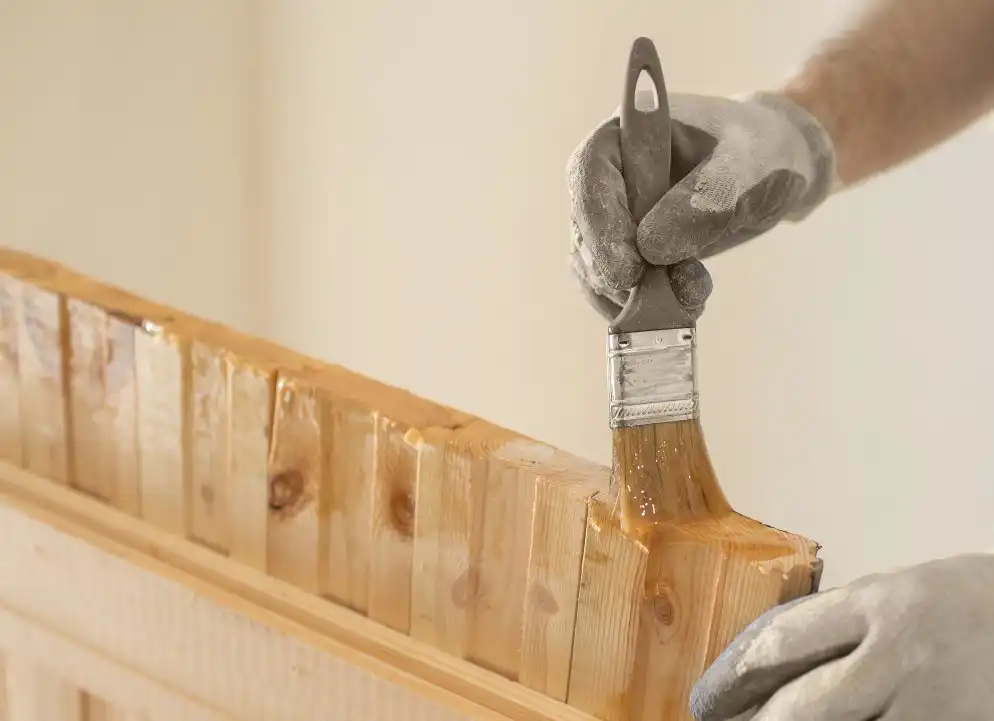Properties of water-based polyurethane varnish
Water-based polyurethane varnish is a product that has a transparent finish. When you first look at the product, this water-based wood varnish will often be milky-white in color. It rarely will dry in this shade but instead will dry clear. When the water-based Polyurethane dries, you will notice no color has been imparted onto the furniture imparted by the varnish. Water-based polyurethane coatings are trendy worldwide because they often smell natural. They usually have no odor, and many consumers prefer this. It has properties that are easy to clean. You can maintain this surface with just soap and warm water most of the time.
Properties of oil-based varnish
Oil-based varnish is a product that is designed by combining oils with resins. The properties are designed in a way that they will cure. Solvents are added to the mixture, and this makes them thin. You can then add in metallic dryers, making the product dry faster. Linseed and tung oil are the main oils blended with natural resins like pine and gum—these work to create varnish and paint. Synthetic resins are more commonly found in modern products. This option is preferred because of its superior strength and longevity. These properties also make the product less expensive to purchase.

Is water-based or oil-based varnish better?
Water-Based Polyurethane has many advantages and often is thought to be better than Oil-Based. This option will dry faster than the oil-based alternative and has less odour. It contains low VOC, and the finish comes out clear. Over time the advantage of this is to keep the colour of the floor in time. It is much easier to apply and more expensive, and less durable. Alternatively, Oil-Based Polyurethane takes longer to dry. It has a strong chemical odour that is difficult to miss. The colour of this finish often begins to turn yellow as it ages. The product is cheaper and more durable than water-based Polyurethane.
What is the main disadvantage of using water-based Polyurethane?
The main problem with water-based Polyurethane is the high cost of purchase. This product is more sleek and modern; therefore, it is more expensive for the consumer. Despite paying this high price, the product is much less durable than its oil-based counterpart. Many consumers see this flaw as a deal-breaker due to the extra maintenance required to strengthen the finish.
How good is water-based varnish?
Water-based varnishes are quite trendy worldwide because of their many advantages. It is a perfect option to use when finishing off the wood. The product is made from acrylic resins, and these are water-based, making the finish non-toxic. It is a highly advanced product that is as effective as solvent-based varnishes. You can expect water-based varnishes to provide excellent durability and fast drying. The product will have lower odour emissions. It is a good product because it is easy to clean off brushes when the application is complete.
Which is better water-based or oil-based Polyurethane?
Oil-based Polyurethane has always been highly regarded as the more durable choice. This title has since lost value, given that water-based Polyurethane has evolved with better formulations. Modern science has made the water-based option equally durable as the oil-based Polyurethane. Both products are still great options to use for flooring.
Difference between oil-based and water-based Polyurethane
The main differences between these products lie in their thickness and hardness. The oil-based version is a thicker poly, but it yellows over time. The texture is much softer than the water-based option, which is acrylic. This option is thinner, which means you will get a harder coating. Oil poly is not scratch resistant and can be easily affected by dents. The water-based poly is more complex and more likely to crack and peel over time.
Oil or water-based Polyurethane for table
Many consumers choose an oil-based polyurethane to finish their tabletops. This finish is probably the top option because it lasts the longest. The polymer used to make the oil-based option can offer better protection against moisture and scratches.
Is water-based Polyurethane waterproof
Water-based Polyurethane can withstand a high level of water exposure. The option is best used on floors because of its streamlined drying time. This Polyurethane will also protect the floor against both scratches and scuffs.
Is water-based or oil-based Polyurethane better for floors?
Water-based Polyurethane is the best choice you can use to finish your wooden floors. This product will dry very quickly, allowing the floor to be used after a brief period. Many consumers appreciate the fast drying times because it saves them time during maintenance. This finish is scuff proof because it dries hard and is easy to clean up. The oil-based option is soft and easily scuffed.
Oil vs water-based Polyurethane for oak floors
Oil-based poly is best for Oakwood because it is soft. The option is nourishing and an excellent way to preserve your wooden oak furniture for long. The product is better for oak than its water-based alternative, which is thin and hard. These features make it less suitable for oak because it is less nourishing. Oil poly is protective but can be affected by dents. The water-based option is less resistant to surface scratching.
Water-based Polyurethane over an oil-based stain
It is possible to apply water-based Polyurethane over an oil-based stain. There might be confusion around this, but polyurethane formulas work together well. Essentially you will just be using the Polyurethane over the paint.
- 6 Tips To Craft The Perfect DIY Woodworking Project - August 1, 2022
- Six Reasons You Need an Air Filter In Your Wood Workshop - August 1, 2022
- American made wood lathes - May 26, 2022